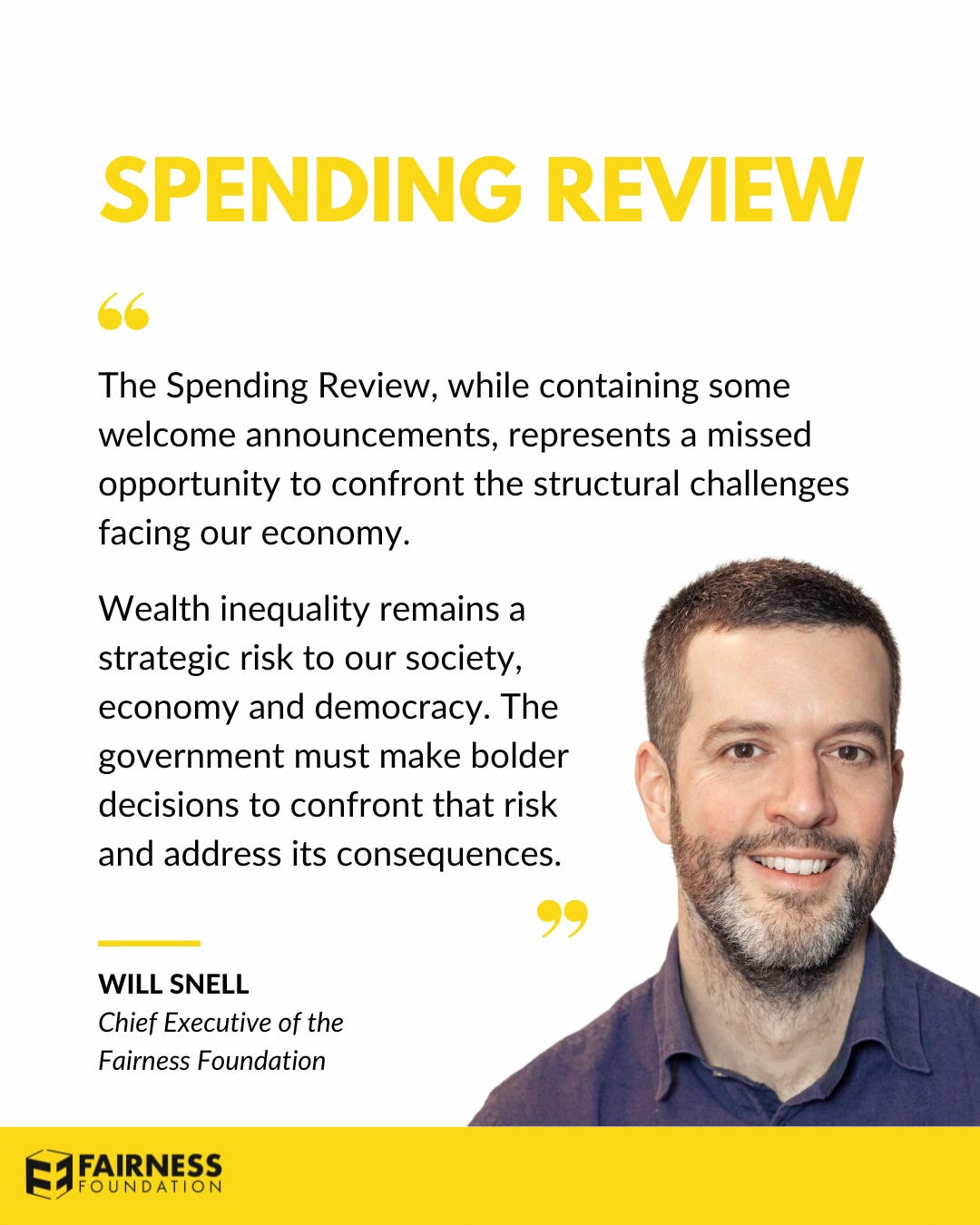Our response to the spending review
A missed opportunity to confront the structural challenges facing our economy
The Spending Review was delivered against an extremely challenging backdrop. This included warnings from the Institute for Fiscal Studies that projected increases in health and defence spending would require cuts elsewhere, as well as Ipsos polling showing that the public lacks confidence in the government’s ability to deliver.
The Spending Review was also made in the context of a society marked by huge wealth inequality, and by a marked increased concentration of private wealth over recent decades. Over the last 36 years public wealth has collapsed from £337 billion to -£1.01 trillion, while the wealth of the 200 richest families has grown from £42 billion to £711 billion. Between 2011 and 2019, the absolute wealth gap between the top 10% and the bottom 50% in the UK has increased by 50%.
For many, this level of inequality represents the consequence of an economy increasingly built on wealth extraction rather than wealth creation, where monopolists and financial speculators accumulate vast profits without delivering productive value, while genuine entrepreneurship and innovation have been squeezed out.
The Spending Review was a chance to tackle those challenges head on and start to build a fairer economy for everyone in society, addressing the extreme wealth inequality that poses a strategic risk to our society, economy and democracy.
Ultimately, today’s announcements fell short of that test.
It’s of course right to acknowledge that the Chancellor did announce some welcome measures. Notably, the injection of £39 billion in funding for housing has the potential to make a real impact, while the announcement of the ‘new’ Green Book rules could help to reverse decades of neglect in left-behind regions if implemented effectively.
But these steps do not go nearly far enough. The Chancellor’s decisions may prove a challenge to the government’s delivery of its own missions, since none can be achieved without the required investment.
At the Fairness Foundation, we are continuing to call on the government to rethink its fiscal approach. Alongside relaxing arbitrary fiscal rules, we need to raise taxes. To do so fairly, we must start by taxing wealth.
While income is taxed at 33% on average, wealth increases are under-taxed at just 4%. Taxes on income from wealth (e.g. capital gains) or stocks of wealth (e.g. a wealth tax) could raise substantial revenues while mitigating some of the most damaging economic and social spillover impacts of wealth inequality.
In the months ahead, the Chancellor will face growing pressure to revisit these choices, as the consequences of this Spending Review - and the missed opportunity to confront the structural challenges it entailed - come into sharper focus.



